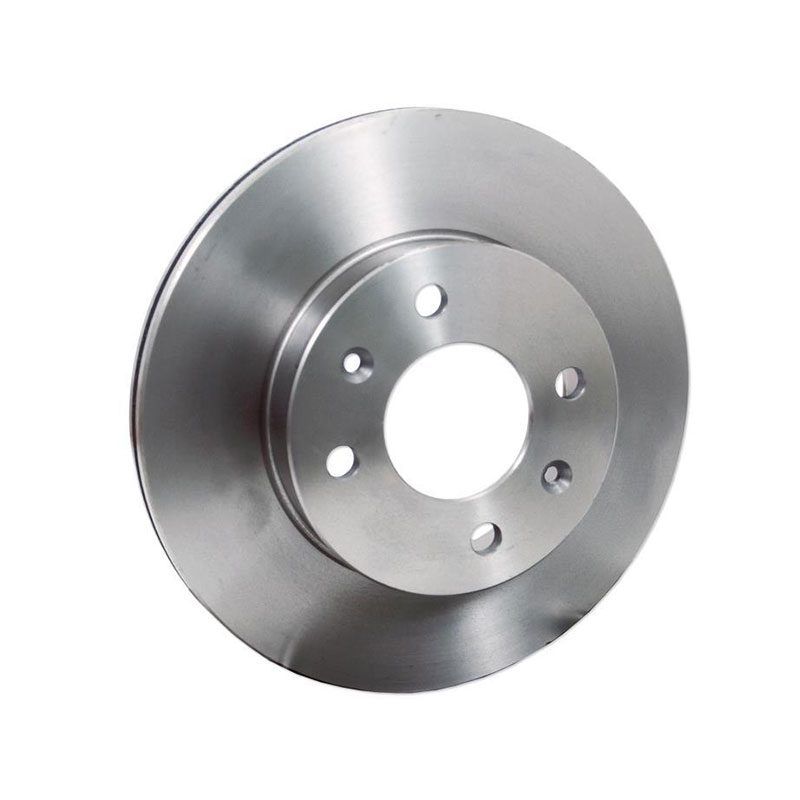How Do I Know If My Disc Brakes Are Bad?
1. Introduction
Disc brakes are an essential component of modern vehicles, providing efficient stopping power and improved safety on the road. As a responsible driver, it's crucial to know how to recognize signs of potential brake problems. This article aims to guide you on how to identify if your disc brakes are bad and when it's necessary to seek professional assistance.
2. Understanding Disc Brakes
Disc brakes work by using friction to slow down or stop the rotation of the wheels. They consist of several key components, including the brake rotor, brake pads, calipers, and brake fluid. When you press the brake pedal, hydraulic pressure is applied to the calipers, causing the brake pads to squeeze against the rotor, generating the necessary friction to slow down or stop the vehicle.
3. Signs of Bad Disc Brakes
It's important to pay attention to the following signs that indicate potential issues with your disc brakes:
3.1 Squealing or Grinding Noises
One of the most common signs of bad disc brakes is unusual noises when braking. If you hear high-pitched squealing or grinding sounds, it's a clear indication that your brake pads are worn out and need replacement. Ignoring this symptom can lead to further damage to the brake rotor, resulting in more expensive repairs.
3.2 Vibrations or Pulsations
If you feel vibrations or pulsations in the brake pedal when applying the brakes, it could be a sign of a warped brake rotor. Warping can occur due to excessive heat buildup or prolonged and aggressive braking. In such cases, the brake rotor may need to be resurfaced or replaced.

3.3 Soft or Spongy Brake Pedal
A soft or spongy brake pedal that goes down too easily when pressed indicates a potential issue with the brake system. This could be due to air bubbles in the brake lines or a leak in the brake fluid. Both situations require immediate attention to ensure optimal brake performance.
3.4 Reduced Brake Responsiveness
If you notice that your vehicle takes longer to come to a complete stop or requires increased pedal pressure, it may indicate worn-out brake pads or a loss of hydraulic pressure. In either case, it's important to have your brakes inspected to identify the underlying cause and take appropriate action.
3.5 Warning Lights
Modern vehicles are equipped with advanced brake monitoring systems that can detect potential issues and illuminate warning lights on the dashboard. If you see the ABS (Anti-lock Braking System) light or the brake warning light illuminated, it's an indication that there may be a problem with your disc brakes. Consulting a professional mechanic or technician is recommended in such cases.
4. Causes of Disc Brake Problems
Understanding the common causes of AUTO Brake discs problems can help you prevent or address issues promptly. Some of the common causes include:
Wear and Tear: Over time, the friction material on brake pads wears down, requiring replacement.
Heat Buildup: Excessive and aggressive braking can lead to heat buildup, causing the brake rotor to warp.
Contaminated Brake Fluid: Moisture or air in the brake fluid can affect brake performance.
Caliper Malfunction: Sticking calipers can prevent proper brake pad contact with the rotor.
Brake System Leaks: Any leaks in the brake system can lead to loss of hydraulic pressure.
5. Maintenance and Inspection
To ensure your disc brakes remain in optimal condition, regular maintenance and inspections are essential. Here are some tips:
Brake Pad Inspection: Regularly check the thickness of the brake pads. If they are worn beyond the recommended thickness, replace them.
Brake Fluid Inspection: Inspect the brake fluid level and quality. If it appears dirty or has moisture contamination, have it flushed and replaced.
Rotor Inspection: Check for signs of warping, such as discoloration or uneven wear. If significant damage is detected, resurfacing or replacement may be necessary.
Caliper and Brake Line Inspection: Ensure the calipers move freely and that there are no leaks in the brake lines.
Remember, if you are uncertain about the condition of your disc brakes or notice any of the aforementioned signs, it's always best to consult a professional mechanic or technician.
6. Frequently Asked Questions (FAQs)
6.1. How often should I replace my brake pads?
Brake pads typically need replacement every 30,000 to 70,000 miles, depending on driving habits and environmental conditions.
6.2. Can I drive with worn-out brake pads?
Driving with worn-out brake pads can compromise your safety and potentially cause damage to other brake components. It's essential to have them replaced promptly.
6.3. Why do my brakes feel mushy or soft?
A mushy or soft brake pedal is often caused by air in the brake lines or a leak in the brake fluid. Bleeding the brake system and addressing any leaks can resolve this issue.
6.4. What should I do if my brakes start squealing?
Squealing brakes usually indicate worn-out brake pads. It's recommended to have them replaced as soon as possible to prevent further damage.
6.5. How long do brake rotors typically last?
Brake rotors can last anywhere between 30,000 and 70,000 miles, depending on various factors such as driving conditions, brake pad quality, and maintenance.
In conclusion, understanding the signs of bad disc brakes and taking appropriate action is crucial for maintaining vehicle safety. Regular inspections, prompt maintenance, and seeking professional assistance when necessary will ensure optimal brake performance and peace of mind while driving. Remember, prioritizing brake health is an investment in your safety and the safety of others on the road.



Comments
0